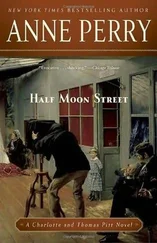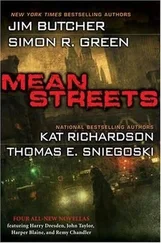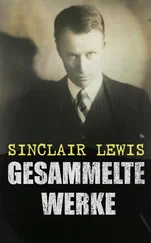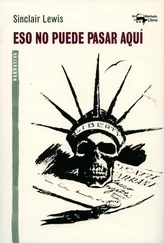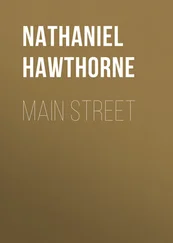Sinclair Lewis - Main Street
Здесь есть возможность читать онлайн «Sinclair Lewis - Main Street» — ознакомительный отрывок электронной книги совершенно бесплатно, а после прочтения отрывка купить полную версию. В некоторых случаях можно слушать аудио, скачать через торрент в формате fb2 и присутствует краткое содержание. Жанр: unrecognised, на английском языке. Описание произведения, (предисловие) а так же отзывы посетителей доступны на портале библиотеки ЛибКат.
- Название:Main Street
- Автор:
- Жанр:
- Год:неизвестен
- ISBN:нет данных
- Рейтинг книги:3 / 5. Голосов: 1
-
Избранное:Добавить в избранное
- Отзывы:
-
Ваша оценка:
- 60
- 1
- 2
- 3
- 4
- 5
Main Street: краткое содержание, описание и аннотация
Предлагаем к чтению аннотацию, описание, краткое содержание или предисловие (зависит от того, что написал сам автор книги «Main Street»). Если вы не нашли необходимую информацию о книге — напишите в комментариях, мы постараемся отыскать её.
libreka classics – These are classics of literary history, reissued and made available to a wide audience.
Immerse yourself in well-known and popular titles!
Main Street — читать онлайн ознакомительный отрывок
Ниже представлен текст книги, разбитый по страницам. Система сохранения места последней прочитанной страницы, позволяет с удобством читать онлайн бесплатно книгу «Main Street», без необходимости каждый раз заново искать на чём Вы остановились. Поставьте закладку, и сможете в любой момент перейти на страницу, на которой закончили чтение.
Интервал:
Закладка:
Carol wondered why Guy Pollock went on digging at routine law-cases; why he remained in Gopher Prairie. She had no one whom she could ask. Neither Kennicott nor Vida Sherwin would understand that there might be reasons why a Pollock should not remain in Gopher Prairie. She enjoyed the faint mystery. She felt triumphant and rather literary. She already had a Group. It would be only a while now before she provided the town with fanlights and a knowledge of Galsworthy. She was doing things! As she served the emergency dessert of cocoanut and sliced oranges, she cried to Pollock, "Don't you think we ought to get up a dramatic club?"
CHAPTER VI
I
WHEN the first dubious November snow had filtered down, shading with white the bare clods in the plowed fields, when the first small fire had been started in the furnace, which is the shrine of a Gopher Prairie home, Carol began to make the house her own. She dismissed the parlor furniture—the golden oak table with brass knobs, the moldy brocade chairs, the picture of "The Doctor." She went to Minneapolis, to scamper through department stores and small Tenth Street shops devoted to ceramics and high thought. She had to ship her treasures, but she wanted to bring them back in her arms.
Carpenters had torn out the partition between front parlor and back parlor, thrown it into a long room on which she lavished yellow and deep blue; a Japanese obi with an intricacy of gold thread on stiff ultramarine tissue, which she hung as a panel against the maize wall; a couch with pillows of sapphire velvet and gold bands; chairs which, in Gopher Prairie, seemed flippant. She hid the sacred family phonograph in the dining-room, and replaced its stand with a square cabinet on which was a squat blue jar between yellow candles.
Kennicott decided against a fireplace. "We'll have a new house in a couple of years, anyway."
She decorated only one room. The rest, Kennicott hinted, she'd better leave till he "made a ten-strike."
The brown cube of a house stirred and awakened; it seemed to be in motion; it welcomed her back from shopping; it lost its mildewed repression.
The supreme verdict was Kennicott's "Well, by golly, I was afraid the new junk wouldn't be so comfortable, but I must say this divan, or whatever you call it, is a lot better than that bumpy old sofa we had, and when I look around——Well, it's worth all it cost, I guess."
Every one in town took an interest in the refurnishing. The carpenters and painters who did not actually assist crossed the lawn to peer through the windows and exclaim, "Fine! Looks swell!" Dave Dyer at the drug store, Harry Haydock and Raymie Wutherspoon at the Bon Ton, repeated daily, "How's the good work coming? I hear the house is getting to be real classy."
Even Mrs. Bogart.
Mrs. Bogart lived across the alley from the rear of Carol's house. She was a widow, and a Prominent Baptist, and a Good Influence. She had so painfully reared three sons to be Christian gentlemen that one of them had become an Omaha bartender, one a professor of Greek, and one, Cyrus N. Bogart, a boy of fourteen who was still at home, the most brazen member of the toughest gang in Boytown.
Mrs. Bogart was not the acid type of Good Influence. She was the soft, damp, fat, sighing, indigestive, clinging, melancholy, depressingly hopeful kind. There are in every large chicken-yard a number of old and indignant hens who resemble Mrs. Bogart, and when they are served at Sunday noon dinner, as fricasseed chicken with thick dumplings, they keep up the resemblance.
Carol had noted that Mrs. Bogart from her side window kept an eye upon the house. The Kennicotts and Mrs. Bogart did not move in the same sets—which meant precisely the same in Gopher Prairie as it did on Fifth Avenue or in Mayfair. But the good widow came calling.
She wheezed in, sighed, gave Carol a pulpy hand, sighed, glanced sharply at the revelation of ankles as Carol crossed her legs, sighed, inspected the new blue chairs, smiled with a coy sighing sound, and gave voice:
"I've wanted to call on you so long, dearie, you know we're neighbors, but I thought I'd wait till you got settled, you must run in and see me, how much did that big chair cost?"
"Seventy-seven dollars!"
"Sev——Sakes alive! Well, I suppose it's all right for them that can afford it, though I do sometimes think——Of course as our pastor said once, at Baptist Church——By the way, we haven't seen you there yet, and of course your husband was raised up a Baptist, and I do hope he won't drift away from the fold, of course we all know there isn't anything, not cleverness or gifts of gold or anything, that can make up for humility and the inward grace and they can say what they want to about the P. E. church, but of course there's no church that has more history or has stayed by the true principles of Christianity better than the Baptist Church and——In what church were you raised, Mrs. Kennicott?"
"W-why, I went to Congregational, as a girl in Mankato, but my college was Universalist."
"Well——But of course as the Bible says, is it the Bible, at least I know I have heard it in church and everybody admits it, it's proper for the little bride to take her husband's vessel of faith, so we all hope we shall see you at the Baptist Church and——As I was saying, of course I agree with Reverend Zitterel in thinking that the great trouble with this nation today is lack of spiritual faith—so few going to church, and people automobiling on Sunday and heaven knows what all. But still I do think that one trouble is this terrible waste of money, people feeling that they've got to have bath-tubs and telephones in their houses——I heard you were selling the old furniture cheap."
"Yes!"
"Well—of course you know your own mind, but I can't help thinking, when Will's ma was down here keeping house for him—SHE used to run in to SEE me, real OFTEN!—it was good enough furniture for her. But there, there, I mustn't croak, I just wanted to let you know that when you find you can't depend on a lot of these gadding young folks like the Haydocks and the Dyers—and heaven only knows how much money Juanita Haydock blows in in a year—why then you may be glad to know that slow old Aunty Bogart is always right there, and heaven knows——" A portentous sigh. "—I HOPE you and your husband won't have any of the troubles, with sickness and quarreling and wasting money and all that so many of these young couples do have and——But I must be running along now, dearie. It's been such a pleasure and——Just run in and see me any time. I hope Will is well? I thought he looked a wee mite peaked."
It was twenty minutes later when Mrs. Bogart finally oozed out of the front door. Carol ran back into the living-room and jerked open the windows. "That woman has left damp finger-prints in the air," she said.
II
Carol was extravagant, but at least she did not try to clear herself of blame by going about whimpering, "I know I'm terribly extravagant but I don't seem to be able to help it."
Kennicott had never thought of giving her an allowance. His mother had never had one! As a wage-earning spinster Carol had asserted to her fellow librarians that when she was married, she was going to have an allowance and be business-like and modern. But it was too much trouble to explain to Kennicott's kindly stubbornness that she was a practical housekeeper as well as a flighty playmate. She bought a budget-plan account book and made her budgets as exact as budgets are likely to be when they lack budgets.
For the first month it was a honeymoon jest to beg prettily, to confess, "I haven't a cent in the house, dear," and to be told, "You're an extravagant little rabbit." But the budget book made her realize how inexact were her finances. She became self-conscious; occasionally she was indignant that she should always have to petition him for the money with which to buy his food. She caught herself criticizing his belief that, since his joke about trying to keep her out of the poorhouse had once been accepted as admirable humor, it should continue to be his daily bon mot. It was a nuisance to have to run down the street after him because she had forgotten to ask him for money at breakfast.
Читать дальшеИнтервал:
Закладка:
Похожие книги на «Main Street»
Представляем Вашему вниманию похожие книги на «Main Street» списком для выбора. Мы отобрали схожую по названию и смыслу литературу в надежде предоставить читателям больше вариантов отыскать новые, интересные, ещё непрочитанные произведения.
Обсуждение, отзывы о книге «Main Street» и просто собственные мнения читателей. Оставьте ваши комментарии, напишите, что Вы думаете о произведении, его смысле или главных героях. Укажите что конкретно понравилось, а что нет, и почему Вы так считаете.

